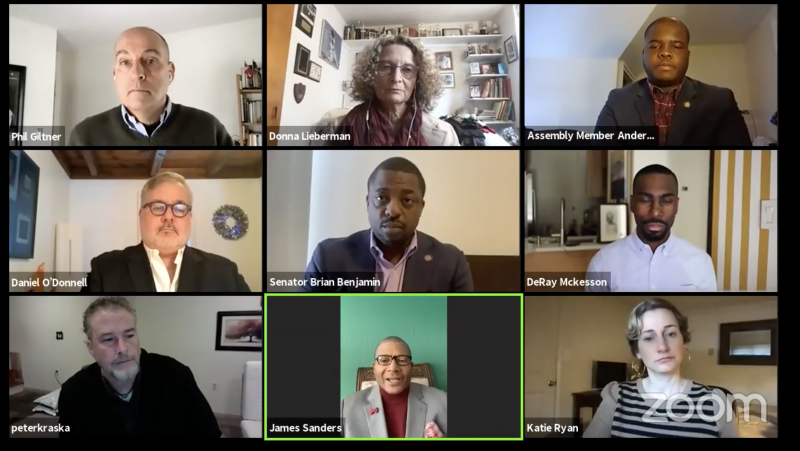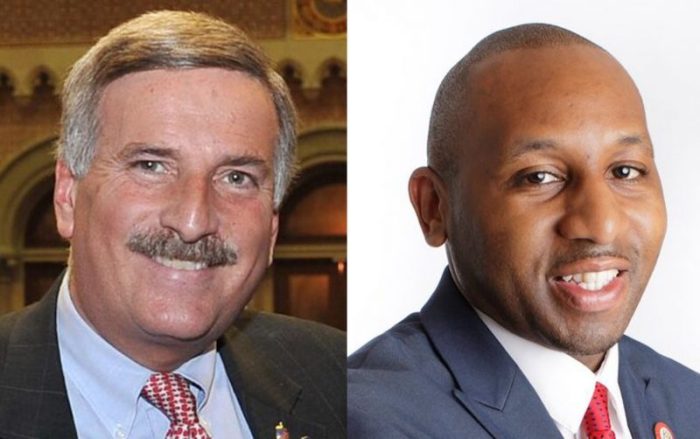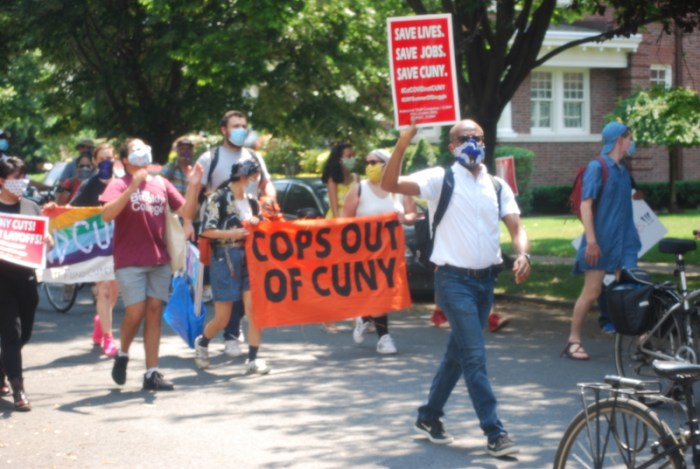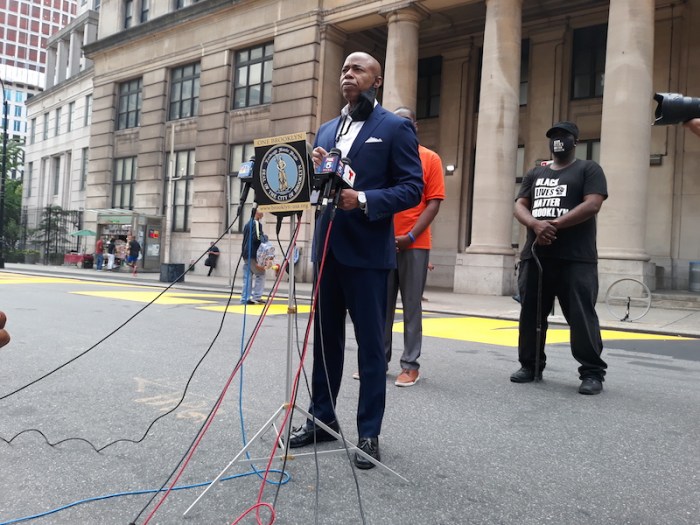After the police killing of Breonna Taylor in Louisville, Kentucky earlier this year, New York officials are taking action to halt the use of violent raids and no-knock warrants in their state.
State Senators James Sanders Jr. (D–Laurelton, Rosedale, Springfield Gardens, Edgemere, Bayswater, Arverne and Far Rockaway) and Brian Benjamin (D-Manhattan), and Assemblymember Daniel J. O’Donnell (D-Manhattan) held a virtual conference on Thursday to announce the introduction of comprehensive search warrant reform legislation in the state.



The recent bill, which they hope will serve as a national model for reform, was developed in collaboration with police reform activists and experts at Campaign Zero, a non-profit police reform campaign. The legislation significantly limits no-knock warrants to only the most severe circumstances, such as incidents involving mass murder, terrorism, or human trafficking. It also bans the issuance of no-knock warrants that are used exclusively for drug searches, which is the most common application for these militarized raids.
“Too many innocent people are being killed, harassed, brutalized and traumatized,” said Sanders, the prime sponsor of the Senate bill. “We are going to remember all these people we’ve heard about and those we don’t know about, and we’re going to come up with the most comprehensive bill in the nation.”
Sanders said that instances of no-knock warrants and ensuing police raids have risen exponentially since 1980. Twenty thousand warrants are now issued each year nationwide, he said, although as many as 60,000 warrants end up playing out as no-knock, even if they are not authorized as such. Sanders noted that the vast majority of these warrants are aimed at implicating people of color in low-level drug crimes.
Elected officials nationwide have begun to move legislation towards police demilitarization after the killing of Taylor, who was shot in her apartment in Louisville. Plainclothes officers Jonathan Mattingly, Brett Hankinson, and Myles Cosgrove broke into her home in March wielding a no-knock warrant as part of a drug investigation. Nationwide protests broke out in response to Taylor’s case and to the police killing of George Floyd in Minneapolis calling for an end to police violence around the country. In response, legislators began to tackle police reform.
“One of the things that really moved us this past summer was George Floyd’s murder,” said Benjamin. “If not for the activism and engagement across this country, I’d still be trying to get an Eric Garner anti-chokehold act passed.”
Benjamin maintained that the entire nation needs to continue working towards change, as this issue doesn’t affect only one state or one city.
“There is too much discretion in the hands of the police departments around this country. This bill provides some level of accountability and transparency as it relates to what is actually going on,” he said.
No-knock warrants are a relied upon tactic in law enforcement, said Dr. Pete Kraska of Eastern Kentucky University.
“The central and most common use of military hardware and technology has been, and remains today, the violent surprise forced entry into people’s homes in the search for low-level drug infractions,” said Kraska, who joined the press conference to share his decades-long research on the exponential growth of police militarization.
He argued that the senseless killing of innocent people is a direct result of the police search warrant system that has gone awry.
“It is an extremely high-risk low-reward endeavor,” he said. “These violent raids destroy homes, they destroy people’s sense of security, they destroy community trust, they destroy police legitimacy and, most tragically, they can destroy the lives of people like Breonna Taylor.”
Although this is a significant step forward, there’s still work to be done, said DeRay McKesson of Campaign Zero.
“We actually have to restrict the execution of all search warrants so they can’t turn into something else, and that is the hardest work to do,” he said. “But it’s the most important work.”
New York is the only state engaged in this kind of comprehensive work, he said, although he believes other states will soon follow suit.
“Across the country, the majority of Americans say we should ban raids,” McKesson said. “And what’s even more impressive is that across parties this is also true.”
















